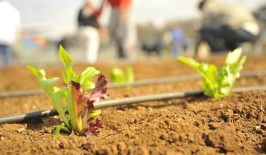Diverse Women for Diversity is an international movement of women from around the globe using the philosophy of Ecofeminism to fight various issues to do with the genetic modification of food crops and other issues related to the plight of women in relation to food production. In their own words, the organisation seeks to , “ defend diversity, peace and democracy from the growing threats of monoculture, war, totalitarianism and fundamentalism.” The organisation was started in the late 1990’s by India’s very own Navdanya ( started by Vandana Shiva).
The leaders aim to spread awareness of and provide alternatives to the dominant global capitalist economy which have, according to the movement, produced a system where sovereignty in food production has been taken out of the hands of small farmers and women and is now dominated by multinationals such as Monsanto. The main aim of the movement is to resist genetic engineering.
According to Navdanya, DWD articulates its commitment to diversity and non-violent technology in India through the National Alliance for Women’s Food Rights, which has spearheaded the movement against genetic engineering by taking up issues such as dumping of GE soya, destruction of the domestic musturd oil industry, and policies that lead to the destruction of natural sources of vitamin A to make way for genetically engineered rice and mustard.
Focusing on women who rely on the earth for their livelihood, DWD has organised groups of women throughout India that create food sovereignty by protecting livelihoods and preserving culture and women’s knowledge and skills. These groups provide trainings and workshops in order to empower women and improve their ability for self-reliance and to enable more sustainable farming. For more information on the movement, you can visit www.navdanya.org.
By Carrie Byrne/ RESET editorial








